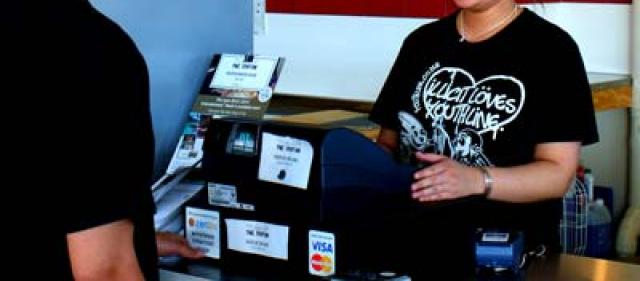Employment
Join the workforce
Employment
Join the workforce
Topics in this section:
Did you know, C.V. stands for ‘curriculum vitae’, which is a Latin expression meaning ‘the course of my life’? A C.V. offers you an opportunity to showcase your skills and achievements, employment and education history and and any other relevant information that would make you the right person for the job.
A good website that can help guide you through creating a C.V. is Careers NZ website: https://www.careers.govt.nz/tools/C.V.-builder
Things you should put in your C.V. are:
Contact Details
This should include your full name, address, phone number (include the number that people can best contact you on) and email address.
Tip! Do you have a cellphone message that goes straight to the “beep” or says “Hello, Hello…? Are you there?” making people think that it’s you answering and not a recorded message? Is your email address ‘numba1playa’or ‘STonA4life’? You should have a clear identifying voicemail message and creating a ‘work appropriate’ email address for employers.
Personal Profile
A summary of who you are, and why you think you would be great for the job. Keep it only 2 or 3 sentences long.
E.g.: “Motivated, reliable and committed, with a keen interest in learning and developing new skills. E.g. Organised, with great communication skills. Values working with people and strives to always provide a positive customer experience.”
Key skills and qualities
Bullet points your key skills and qualities. This is how employers to find out if you are a good fit for the job. For example:
- Honest and reliable with good communication skills when dealing with customers and fellow team members.
- Good time management and organisation skills.
- Able to learn new things quickly.
Ideally also include some example to show what you mean by that skill. E.g. if you were applying for a job in a pet store:
- Animal handling skills – responsible for a dog and cat at home, as well as my neighbours animals when they are away.
Personal achievements
These can be related to:
- Awards, competitions, certificates of achievement in school subjects.
- Sports teams, or other clubs you’ve been involved with.
- Awards or achievements in previous jobs you’ve had.
Have a look at other areas of your life as well, do a good brainstorm of achievements, then pick a few to list in this section.
Education and training
- Education: State what NCEA level you are currently, and from there all the levels you have completed so far, with the years. Start with the most recent first. Don't give an explanation of what you have passed or failed. You can include subjects you studied. E.g. ‘Currently completing NCEA level 3 [subjects]. NCEA level 2 completed [subjects studied]. NCEA level 1 completed [subjects studied]’
- Training: think about the skills you may have learnt through things you have been involved with, for example from: extramural activities (e.g. hobbies, courses), volunteer work, internships, unpaid work experience.
Name who provided the training and when you did the training.
It’s okay if you don't have much training at this stage.
Employment History/Work Experience
- If you’ve had jobs before, start the list with your most recent one first.
- If you haven’t had a job before, change the heading of the template to work experience and include work experience such as volunteer work and casual afterschool/holiday jobs.
Interests and hobbies
Make a short ‘interests’ section. This is about showing an employer what you like to do outside of work. Have a think about what interests might be more appropriate than others to note down for the job you’re applying for. I.e. if you’re applying for a job in a bookstore, and have an interest in reading fantasy novels and biographies, note that down! If you’re applying for a job at an automotive store and enjoy working on cars and fine-tuning their performance, note that down!
Referees
- Referees are people who can ‘back up’ what you’re saying in your C.V. about your skills and qualities.
- A family member can’t be a referee, but a teacher, coach, former employer, or any other adult (like a family friend) that knows you well can be!
- Have a chat with the person first that you’d like to use them as a referee, and let them know when you apply for jobs so they aren’t caught by surprise when they get a phone call asking about you.
- On your C.V. state the referees relationship to you e.g. your teacher, your coach, your ex-employer, family friend etc.
Last steps!
- Check spelling and grammar and that all the info you’ve listed is correct.
- Ideally get someone else to read and double-check your C.V. and cover letter.
So what do you do when you have finished your C.V.?
There are a number of websites that advertise new jobs – Seek and TradeMe are two that are frequently used by employers.
These job ads will tell you the date when your C.V. and cover letter are due and who to send it to.
Make sure that you get the due date and the person's name right. Imagine employing someone who can't even spell your name properly!
Before you hand in your C.V., edit your C.V. and cover letter to match the same sorts of qualities and skills the employer wants to see (as long as you really believe you can actually demonstrate those skills/qualities).
Do I need an intro to my C.V.?
Yes! Many adverts will ask for a ‘cover letter’ to go with your C.V. This letter is a chance to make a good impression to your employer and get them interested in reading your C.V.. If your cover letter is boring, they may not even look at your C.V.
The letter should:
- Be set up as a business letter. Search for business letter templates online to get an idea.
- Addressed to a specific person if possible rather than “To whom it may concern”.
- Be one page long at the maximum – get to the point
- Name what position you’re applying for.
- Say why you would like the position with this particular employer.
- Show you have an understanding of the skills require for the job.
- Briefly showcase that you have matching skills and experience to what they want.
- Provide recent examples of things you have been doing which would show the employer that you are the right person for the job!
- Show that you are genuinely interested and enthusiastic about this specific opportunity.
Need to talk to someone?
Kia ora - tamariki ma
Contact us, we are here to help!


























